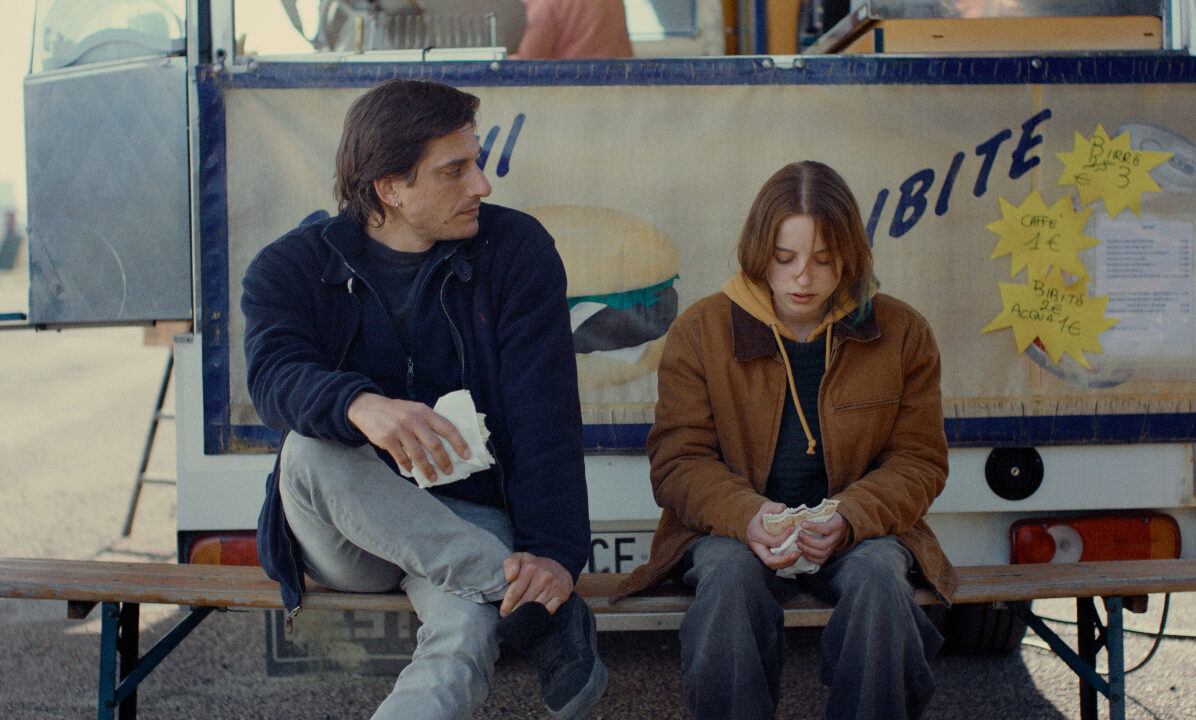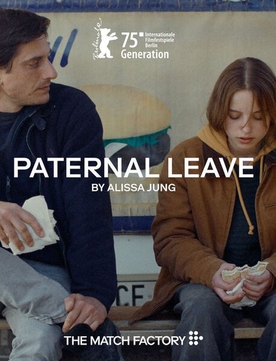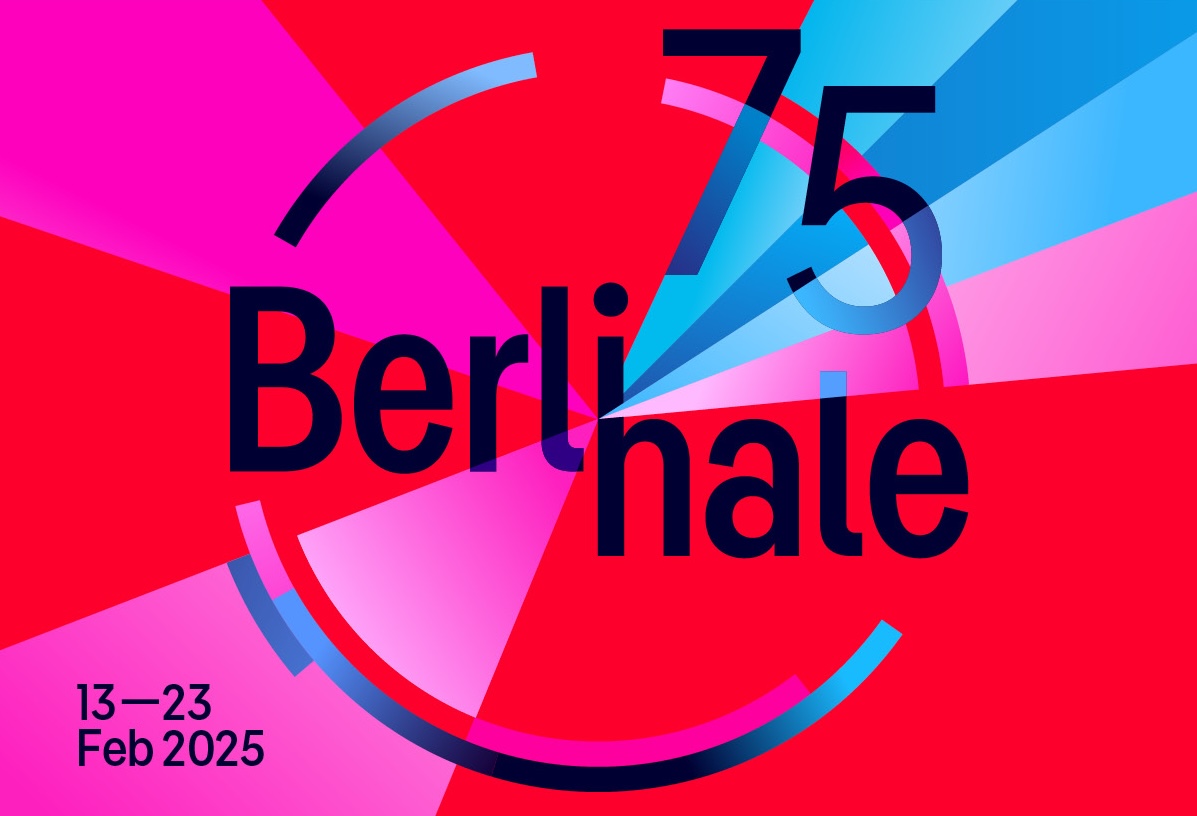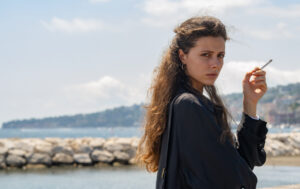Paternal Leave

There’s a certain poetic quality to Paternal Leave, a film that leans heavily on symbolism – most notably in its unusual choice of the flamingo. Known for their co-parenting instincts and their fragile physiology, the birds serve as a fitting metaphor for the story’s exploration of fatherhood, emotional vulnerability and unsteady responsibility. Alissa Jung shapes a strikingly atmospheric portrait of a fractured father-daughter relationship, but at over two hours, the film’s languid pacing and repetitive conflicts leave it feeling overstretched.
15-year-old Leo (Juli Grabenhenrich), raised by her mother in Germany without ever knowing her father (Luca Marinelli), finally uncovers his identity and wastes no time in tracking him down. Her search leads her to a boarded-up beach bar on the wintry coast of northern Italy, where she finds Paolo, a man unprepared for the sudden demands of parenthood. Already struggling to co-parent his toddler daughter, Emilia (Joy Falletti Cardillo), with his ex, Valeria (Gaia Rinaldi), Paolo is thrown further off balance by Leo’s appearance. What follows is a hesitant push and pull between father and daughter, yet their relationship never quite finds its footing – Paolo’s indecision and emotional retreat keep them at an impasse.
Music weaves through Paternal Leave in a way that mirrors its themes of disconnection and duality. The opening and closing moments are set to the heavy, hard-hitting poetry of Kae Tempest, establishing an undercurrent of raw emotion. Leo and Paolo initially bond over their shared taste in 90s rap, yet when Paolo sings to Emilia, he chooses soft, intimate acoustic lullabies in Italian – an altogether different, more tender expression of fatherhood. This contrast speaks to his divided sense of self: distant and hesitant with Leo, yet instinctively nurturing with Emilia. Cinematographer Carolina Steinbrecher captures the bleak, windswept landscapes of Emilia-Romagna’s riviera with a quiet detachment that mirrors the film’s mood. The flamingos, appearing in scattered shots, reinforce this atmosphere with their elegant yet haunting presence.
For all its visual and thematic strengths, Jung’s directorial debut struggles to justify its runtime. Repeatedly circling its central conflict without ever landing anywhere decisive. Moments of connection are undone time and again by repetition, and while the meditative tone is initially compelling, it becomes frustrating by the second half as the lack of forward motion becomes apparent. The result is a picture that is undeniably atmospheric, but ultimately as adrift as its young protagonist.
Christina Yang
Paternal Leave does not have a release date yet.
Read more reviews from our Berlin Film Festival coverage here.
For further information about the event visit the Berlin Film Festival website here.
























Facebook
Twitter
Instagram
YouTube
RSS